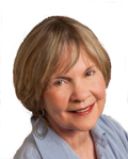
Caregiving
Alzheimer’s: Is It Wrong to Laugh?
For all the heartbreak, there are funny moments.So laugh.
Posted November 9, 2013

I am holding the door for my mother as she walks into her doctor’s waiting room. I look around its laminated fake wood wainscoting and the end tables piled with fishing magazines and Mechanics Illustrated. The room is dark and things inside look terribly slow and depressing for a brilliant Texas October afternoon.
Several days earlier I drove from the University where I teach to the Philadelphia airport and hopped a plane to Dallas, as I do five or six times a year, to help my mother. Given her memory lapses, my sister and I believe something may be wrong with her. I have a book deadline and thirty five student papers to grade, but I have not brought them along to the doctor’s office, as I would at home. I’ve vowed that when I am with my mother, I will really be with her. This, I tell myself, is my work after work.
Slowing down enough to match my mother’s pace with a walker is tricky. I never get the hang of it. I slide into a chair, feeling anxious and revved up. She has decked herself out for this occasion in a plum skirt and a magenta blouse. As she settles into her chair, her many bright bracelets jangle.
We were spending a lot of time in waiting rooms
On the other side of the room sits an elderly woman with crossed eyes and long, flowing gray-brown hair. She is gripping a cane. She asks, “Are you seeing Dr. Wright?”
“I hope so,” Mother says.
“He’s so nice.”
“I’m seeing every doctor in Dallas today!” Mother brags. I wonder whether she’s kidding or whether she thinks we really have. After all, we did visit her back doctor before lunch. I can’t help smiling, which probably eggs her on.

“This getting-old business is dangerous!” she says.
“I don’t like it one bit,” the other woman agrees.
“It’s scary that they call a doctor’s work practice!” Mother mutters, wiggle-waggling her right foot in the air. I laugh out loud.
The woman grins. “What’s your ailment?” she asks my mother.
“I don’t have a thing wrong with me,” Mother tells her, gazing around the waiting room. “It’s all in my head.” I can’t tell whether she means this as a dig at her children, who worry about her, or as a joke. I laugh anyway.
My mother is whip-smart and it is often hard to read her, which is perhaps why we’ve reached this point without a diagnosis.
We were seeing the doctor a lot
One of Dr. Wright’s assistants ushers us into an examining room, where mother waits tensely until the doctor strides through the door. He is a wiry, fifty-something elf in his white coat and white running shoes. Flicking a shock of hair out of his eyes, he shakes my hand, then rests his hand on Mother, as if in a quick blessing. “Come on, Mrs. Kelley,” he said. “Jump up here. Let’s take a look.” He helps her climb a stepping stool so she can sit on his brown upholstered patient table.
He takes her pulse, counting intently, then studies her and asks, “How are you feeling?”

“How do you think an old lady like me is feeling?” she demands. Then she grins triumphantly. She is not about to list her aches and pains for any doctor, even her darling Dr. Wright. After 40 years of nursing, she knows no mere doctor can fix what is wrong with her. Besides, to list her troubles would be to trivialize them. It would be to move them out of the permanent, immutable, Platonic realm, where they rightfully belong, onto a medical chart.
I had no way of knowing whether my wise-cracking mother, who was once again subverting her doctor, was in control of her jokes. A decade earlier she would not have spoken that way to anyone, much less a doctor. But I chose to be amused. Now I wonder whether this wasn’t one of the way-stations on the Alzheimer’s journey—a lessening of control. My sister and I had learned how to care for Mother by watching her care for her own mother, but our grandmother didn’t have Alzheimer’s. I had no way of charting the progress of the disease or predicting what might happen next. It was early in 2000. I didn’t even know what Alzheimer’s was.
Who knows what's coming next with Alzheimer's?
I climbed on a plane the next morning without knowing what we were facing. Somehow I graded the student papers, probably on the trip home. Somehow I met the book deadline. I don’t remember the particulars. With a job and children at home, my life at the time was a fog of duties and responsibilities. We didn’t know then that mother was heading into full blown Alzheimer’s, that our caregiving would need to increase, that within five years she would die of the disease.
Since every case of Alzheimer’s is unique, there’s no clear map for caregivers. The unpredictable changes can be almost as disorienting for the caregiver as they are for the patient. It is hard to know where you are or how to respond.
But I am not sorry that I laughed when I had the chance.
Jeanne Murray Walker is the author of THE GEOGRAPHY OF MEMORY: A Pilgrimage Through Alzheimer’s, which tells the story of caring for her mother during her last decade.
Find GEOGRAPHY at: http://amzn.to/1kHNpgN
Jeanne's web site: www.JeanneMurrayWalker.com



